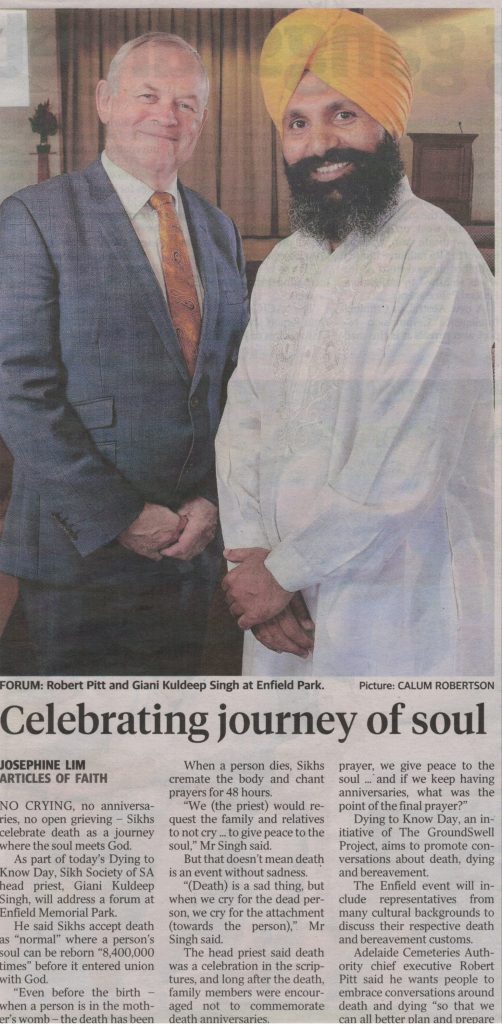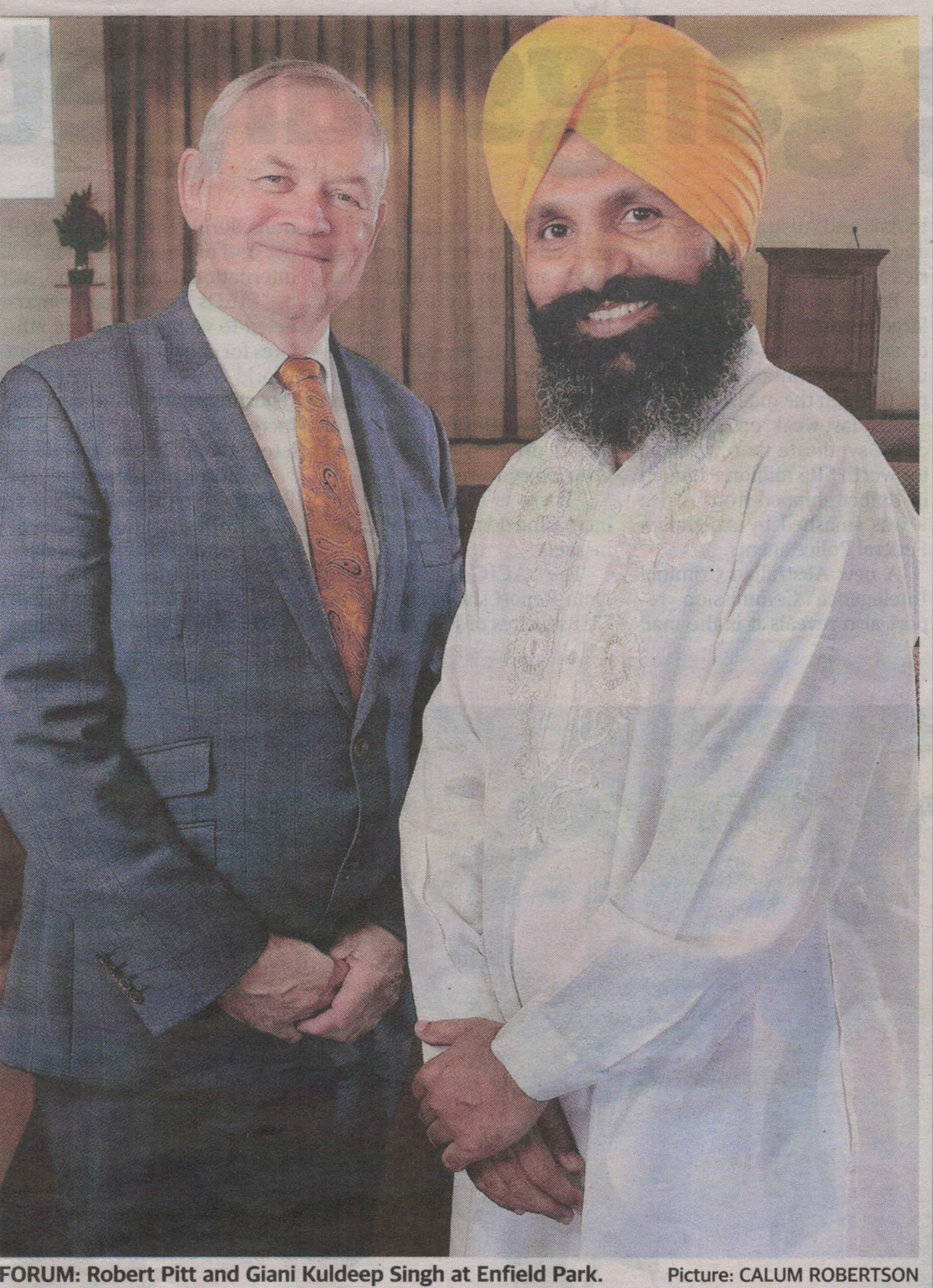AUGUST 12, 2016
Exploring death and bereavement customs from 4 different cultures was the theme for this year’s inaugural Dying To Know Day event on Monday 8th August 2016 at Adelaide Cemeteries. The room, usually reserved for funerals, was packed out at the invitation-only dinner event. The rows of seats were replaced with round tables dressed in crisp white linen tablecloths ready for the delicious Indian buffet.
As guests arrived they were invited to write on the Before I Die wall. Before I Die is a global interactive art project that creates a space for people to share their aspirations in public. Each person completes the sentence: Before I Die I want to … . The responses included travel aspirations such as go to Cuba, go to Finland, soak up the Tuscan sun, walk the hills in Bhutan, climb Mt Everest and return to Ireland. Poignant personal aspirations included: I want to see my brother and Dad, learn to love fully, hold my grandchild. The board was full by the end of the evening.
Guests included Funeral Directors, David Chapple (SA Writers’ Centre), Death Doulas, Occupational Therapists, Researchers, Palliative Care Nurses, members of the public, Board Members and Staff. Thanks to Arun Ramchand, Community Engagement Consultant and Rhiannon Lewis, IT Manager, both from the Adelaide Cemeteries Authority for organising such an engaging event.
Robert Pitt, the CEO, warmly welcomed guests then handed over the proceedings to me; as the MC for the evening. I was so honored and thrilled to have been asked to be the MC in the capacity as The Groundswell Project’s SA representative for the evening. It was a jam-packed few hours. Our 5 speakers were:
- Kamal Dahal, Chairperson, Bhutanese Association of SA
- Alex Kitingan, Honorary Consul of Malaysia in SA
- Dipak Dhamala, Honorary Consul of Nepal in SA
- Paramjit Budwal, Committee member, Sikh Society of SA
- Giani Kuldeep Singh, Resident Priest Sikh Temple, Glen Osmond SA

Kamal spoke about the Buddhist and Hindu death and bereavement customs in Bhutan. There are numerous traditional rituals. If a woman dies before her husband she is dressed in red. The body is required to be buried or cremated within 24 hours of death. Sons of the departed stay in a room isolated from other family and friends and avoid talking to females. They wear mourning dress for 30 days. The cloth is white and has no stitching and they shave their heads. They do not eat salt or meat. There is an annual remembrance for departed souls on the anniversary of their death called Shradh.
Alex spoke about traditional Animist death and bereavement customs in Malaysia. The Animist traditions are based on the belief that everything has a spirit including people, animals, rocks and mountains. Death is a taboo topic of conversation. All souls go to Mt Kinabalu to rest. There are a rich variety of rituals to help the departed souls find their way to Mt Kinabalu and avoid staying around as a ghost such as chicken sacrifices to release the ‘heat’ or energy.
Dipak spoke about Buddhist and Hindu customs in Nepal. It was heartening to hear how Buddhists and Hindus use the same temples. There is a deep respect, acceptance and tolerance for all religions in Nepal. There is no conflict over religion. The underlying principle is that everything is God; people, nature, objects therefore everything and everyone is respected.
Paramjit Budwal and Giani Kuldeep Singh spoke about Sikh death and bereavement customs. Sikhs are very comfortable talking about death. They are born knowing they are destined to die at a predetermined time. Cremation enables the body to return to the 5 basic elements; fire, earth, air, water and ether. The ashes are placed in flowing water. Prayers are the only thing that accompanies a departed soul. “There is no crying, no anniversaries and no open grieving [because] Sikhs celebrate death as a journey where the soul meets God.” This was the opening line from The Advertise article (p16, 8/8/16) promoting the event at Enfield Memorial Centre.
A panel discussion at the end covered some interesting topics. What can Funeral Directors and Cemeteries do to assist these cultures carry out their traditional rituals? Are people from these communities who traditionally die at home ending up dying in ICU like 1 in 10 Australians currently do? There was a lively buzz in the room and people stayed long past the promoted end time of 8:00pm in order to continue the panel discussion.
Each person took home a Dying To Know Day Chatterbox to continue the conversation with family, friends and work colleagues. The Guest Speakers were presented with a copy of the book Dying To Know, which was the inspiration for Dying To Know Day.
This is the 4th year for Dying to Know Day. The goal is to bring to life community conversations about death, dying and bereavement. There have been over 250 events across Australia, with over 100 of them this year indicating the event is growing in popularity each year. Anyone can host a Dying To Know Day event. Just go to the website http://www.dyingtoknowday.org to download your free resources and register your event. Maybe next year you will host an event on 8th August 2017?
For more information get in touch.
